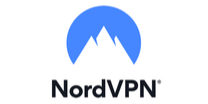Top 10 Betting Sites Explained
Our experts regularly update and review the top betting sites, highlighting why they rank highly for hockey. Explore detailed insights and community feedback on individual BethubSport review pages.
How to Choose and Use a VPN: A Beginner's Guide
In today's digital age, protecting your online privacy is more important than ever. This guide will help you understand what a VPN is, why you might need one, and how to choose the best VPN service for your needs.
1. What is a VPN?
Understanding VPNs
A VPN, or Virtual Private Network, is a service that creates a secure, encrypted connection between your device and the internet. It hides your IP address and protects your online activity from prying eyes.
VPNs are essential for improving online privacy, especially when using public Wi-Fi networks.
2. Why Use a VPN?
Benefits of Using a VPN
- Privacy Protection: Hide your IP and keep your browsing private.
- Secure Public Wi-Fi: Protect sensitive data on free or open networks.
- Unblock Content: Access websites and streaming content not available in your region.
- Bypass Censorship: Access restricted sites in certain countries.
3. How to Choose the Right VPN
Key Features to Look For
- Strong Security: Encryption and no-logs policy.
- Good Speed: Fast servers with minimal slowdown.
- Large Server Network: More locations, better access.
- Easy to Use: Simple apps for all devices.
- Reliable Support: Helpful customer service.
4. Top VPN Services in 2025
Best VPN Providers
These VPNs are trusted for their security, speed, and ease of use. Pick one based on your needs and budget.
- NordVPN: Secure, fast, and reliable.
NordVPN Official Site
- ExpressVPN: Premium speeds and privacy.
ExpressVPN Official Site
- Surfshark: Affordable with unlimited devices.
Surfshark Official Site
5. Setting Up and Using a VPN
Quick Setup Guide
1. Choose a VPN provider.
2. Create your account.
3. Download and install the app.
4. Log in with your account.
5. Select a server and connect.
Your internet traffic is now private and secure.
6. VPN Usage Tips
Best Practices
- Enable Kill Switch to prevent data leaks.
- Use Split Tunneling for flexible connections.
- Always update your VPN for latest security.
- Stay connected on public Wi-Fi.
7. Common VPN Myths Debunked
Truth vs Myths
- Myth: VPNs are for tech experts only. Fact: Modern VPNs are beginner-friendly.
- Myth: VPNs make you fully anonymous. Fact: VPNs improve privacy but can't guarantee full anonymity.
- Myth: VPNs slow down internet a lot. Fact: Premium VPNs have minimal speed loss.
8. Legal Considerations
Is it Legal to Use a VPN?
VPNs are legal in most countries like Canada, USA, and Europe. But remember, illegal online activities remain illegal even with a VPN.
9. Additional Resources
Learn More About VPNs
- VPN for Dummies: Beginner's Guide
NordVPN Blog
How We Rank VPN Services in Canada
Not all VPNs are built the same. Our ranking focuses on what really matters to Canadians—security, speed, ease of use, and whether it works with the stuff you care about like Netflix or torrents. This guide helps you pick a VPN that fits your online life.
Privacy & Security
Top VPNs keep your data safe with strong encryption and a no-logs policy. We only recommend providers that take privacy seriously—no shady tracking or data selling.
We also check where the company is based, and if they've been audited for security.
Speed & Performance
A good VPN shouldn't slow you down. We test server speeds across Canada and abroad to make sure streaming, gaming, and browsing stay smooth—even when connected.
Streaming & Content Access
Want to watch U.S. Netflix, BBC iPlayer, or sports from abroad? We rank VPNs that consistently unblock major streaming services without annoying errors or slowdowns.
Ease of Use
The best VPNs are simple to set up and use on all your devices. We look for apps that are clean, intuitive, and work well on desktop, mobile, and even routers.
Pricing & Payments
We highlight VPNs that offer good value, fair refund policies, and flexible plans. Paying with credit cards, PayPal, or even crypto should be smooth and secure.
Customer Support
Things don’t always go as planned. We test support teams for response time and helpfulness—whether it’s live chat at 2am or email follow-ups the next day.
Extra Features
Split tunneling, kill switches, ad blockers, mesh networking—some VPNs go beyond the basics. We flag standout features that actually add value for real users.
Legal VPN Use in Canada by Province (2025)
Wondering if VPNs are legal in Canada? This guide breaks down what’s allowed, how VPNs are used across different provinces, and what to keep in mind when choosing a VPN service like NordVPN or Surfshark in 2025. Whether for streaming, privacy, or remote work, Canadians are using VPNs more than ever.
Overview of VPN Use in Canada
Using a VPN is fully legal across Canada. VPNs help protect your personal data, unlock geo-blocked content, and secure your internet activity. While provinces don’t regulate VPNs directly, digital privacy remains a national concern, with laws like PIPEDA setting federal standards for data protection.
- VPNs are legal in every Canadian province and territory.
- They are commonly used for streaming, privacy, and public Wi-Fi security.
- No registration or license is needed to use a VPN.
- Choosing a no-logs VPN based outside Canada enhances privacy.
VPN Use by Province in Canada
While VPN use is legal across Canada, each province has its own privacy regulations. This list outlines how VPNs are commonly used and what laws apply in each region.

- VPN Use: Legal.
- Relevant Laws: Ontario’s Freedom of Information and Protection of Privacy Act (FIPPA).
- Common Uses: Streaming U.S. content, secure remote work access.

- VPN Use: Legal.
- Relevant Laws: Act Respecting the Protection of Personal Information in the Private Sector (Bill 64).
- Common Uses: Bypassing geo-blocks, business data encryption.

- VPN Use: Legal.
- Relevant Laws: Freedom of Information and Protection of Privacy Act (FIPPA BC).
- Common Uses: Streaming, public Wi-Fi protection, business use.

- VPN Use: Legal.
- Relevant Laws: Personal Information Protection Act (PIPA).
- Common Uses: Secure online banking, remote work, Netflix U.S.
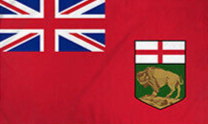
- VPN Use: Legal.
- Relevant Laws: FIPPA Manitoba.
- Common Uses: Streaming platforms and privacy on shared networks.
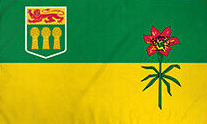
- VPN Use: Legal.
- Relevant Laws: Local privacy guidelines aligned with PIPEDA.
- Common Uses: Internet security in rural areas and streaming access.

- VPN Use: Legal.
- Relevant Laws: Provincial privacy acts and federal PIPEDA.
- Common Uses: Work-from-home setups, accessing restricted websites.

- VPN Use: Legal.
- Relevant Laws: Public sector privacy regulations.
- Common Uses: Safe browsing and streaming support.

- VPN Use: Legal.
- Relevant Laws: Data protection guidelines under federal PIPEDA.
- Common Uses: General privacy and YouTube region unlocks.

- VPN Use: Legal.
- Relevant Laws: Follows federal standards.
- Common Uses: VPNs for travel, family protection, or work.
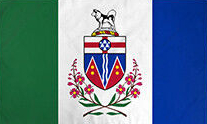
- VPN Use: Legal.
- Relevant Laws: Follows national privacy regulations.
- Common Uses: Business VPN usage and encrypted browsing.
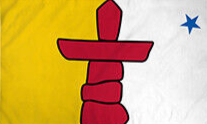
- VPN Use: Legal.
- Relevant Laws: Covered under federal legislation.
- Common Uses: Internet safety and access for remote workers.
